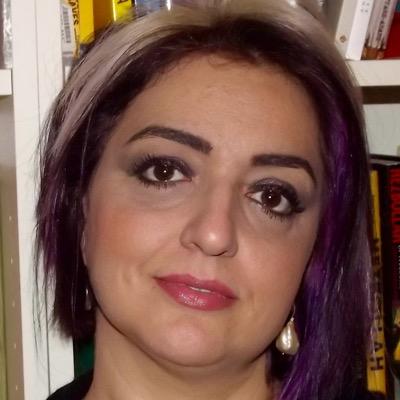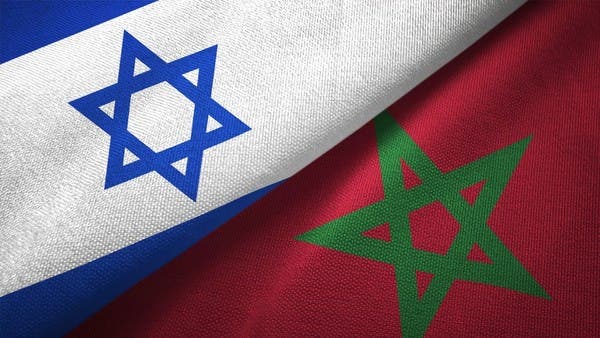Morocco and Israel, on December 10th, agreed to start the normalization of their diplomatic relations. This was announced by US President, Donald Trump, explaining that the decision is part of an agreement that provides the US recognition of the sovereignty of Morocco on the disputed territory of Western Sahara. A significant gift from Trump, obviously going against international law, as usual, bearing in mind that most democratic countries and international organizations such as the UN and the African Union do not recognize Morocco’s sovereignty in Western Sahara. But at the same time, the UN and the Arab League do not even recognize its autonomy. Western Sahara has an unresolved legal status and borders Morocco, Algeria and Mauritania. Western Sahara was a Spanish colony from 1884 to 1975. Immediately after its departure, the territory was divided between Morocco and Mauritania.
But in 1973 was founded the Polisario Front, which began the armed struggle, firstly against the Spaniards and later against the Moroccans and Mauritans. After the departure of the Spaniards, the Polisario Front proclaimed the Sahrawi Arab Democratic Republic, which Algeria has supported immediately and still supports. Faced with the Polisario guerrillas, the Mauritanian immediately withdrew from the scene, while Morocco continued its annexation. The conflict continued until 1991 when a ceasefire was signed under the auspices of the UN, with the promise of a referendum on the legal status of the Sahara. Since 2007, a plan drawn up by the Moroccan government has been deposited to the UN, which envisages a strong autonomy of the Sahara, but under Moroccan sovereignty. Only recently, last November, tension has increased again with the Polisario Front supported and encouraged by Algeria.
The Kingdom of Morocco is the fourth Arab country, after the United Arab Emirates, Bahrain and Sudan, to start the normalization of relations with Israel as part of the so-called Abrahamic Agreement wanted by Trump. Perhaps after the Emirates, it was thought that the next country would be Morocco. This is because it is the furthest Arab country geographically and with special relations with Israel, even if not properly under the light of the sun.
Historically Morocco was home to a large Sephardi Jewish community, originating from the Spanish persecutions of 1492. Although the Sephardi today should be about five thousand in Morocco, in Israel there are almost one million Jews currently descendants of Jewish emigrants who arrived illegally in Israel from Morocco through secret operations after 1948. Former Defense Minister, Labor Amir Peretz, is of Moroccan origin.
King Hassan II was fundamental in allowing the mass emigration of Jews in exchange for Mossad’s technology and Moroccan intelligence training. For nearly 60 years, the two countries have worked closely together in secret on military and intelligence matters and the migration of Jews to Israel. As Rony Bergman also writes, “Israel helped Morocco obtain weapons and intelligence-gathering equipment and learn how to use them, and helped assassinate an opposition leader. Morocco helped Israel to welcome Moroccan Jews, to organize an operation against Osama bin Laden and even to spy on other Arab countries.” Collaboration has been crucial to the interests of both countries.
About 50,000 Israelis travel to Morocco each year to learn about the origins of their family and the existing Jewish community. Israeli Prime Minister Ehud Barak attended Hassan II’s funeral. In 2015, King Mohammed V was posthumously honored for protecting 250,000 Jews from the holocaust during World War II. Hassan II, in 1991 had appointed a Jew, André Azoulay advisor to the Crown. and his daughter, Audrey, was appointed by Mohammad VI to lead UNESCO. Mohammed VI in 2011 sponsored a new constitution that recognizes Jews as an integral part of the Moroccan people.
As soon as Trump announced the agreement via twitter, Mohammad VI made it known that his country will make three moves in the near future. First of all, to facilitate direct flights for the transport of Jews of Moroccan origin and also of tourists from Israel and Morocco. The airlines of the two countries are already working on direct flights. Liaison offices will be opened in the capitals of the two countries. Liaison’s offices were first opened in 1994, but closed after the second Intifada. Israeli Prime Minister Benjamin Netanyahu congratulated the announcement, also because he did not have to give anything in return. Despite this, there was no shortage of discontent in Israel, since, as local media reveal, neither Foreign Minister Gabi Ashkenazi, nor Defense Minister and Prime Minister Benny Gantz had been informed of the normalization of relations with Morocco. The Palestinians have been critical, as well as the previous agreements. But the King of Morocco declared that the agreement “do not in any manner affect Morocco’s ongoing and sustained commitment to the just Palestinian cause”.
The recognition of Israel by the kingdom of Morocco, even if it has nothing to do with an open war with Israel, is certainly an important move for the Abrahamic agreement. It will certainly facilitate Ryadh to move closer to normalization with Israel in turn. And this above all for a religious reason. The king of Morocco, Mohammed VI is the only Arab ruler who boasts a direct descent from the Prophet. The fact that a direct descendant of the Prophet’s ruler unconditionally recognizes Israel cannot but have an impact on Saudi Arabia’s choices in the future. It is true that Morocco has a system of democratic elections, but the King certainly played a fundamental role in the decision taken. In the Moroccan constitutional system, the King, who has the title of Emir of all believers, plays a primary and decisive role in foreign policy choices. Hence his full constitutional legitimacy to deliberate an international agreement.
It is very likely that the Moroccan geopolitical choice will also influence many African Islamic countries, countries that Jerusalem considers fundamental for its foreign policy and economic penetration in Africa, to initiate relations and sign agreements in the future with Israel. Morocco has been the leading country in all of Africa for years in terms of economics, banking, telecommunications, and the fight against jihadism.
Surely this is another victory for Trump, in his final days as US President. And frankly, it’s not even known whether Biden will be able to back down. But with regard to wars to be closed a concern arises: the clash between Algeria and Morocco. Of course, Trump doesn’t care about this.
Author
-

Researcher on International Relations Middle East and Balkans
View all posts
CSSII- Centro Interdipartimentale di Studi Strategici, Internazionali e Imprenditoriali,
Università di Firenze, Italy, Albania




